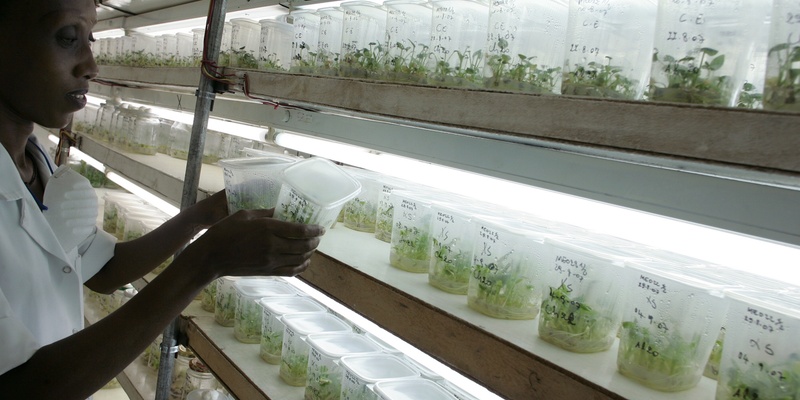Nature Plants publishes a new paper on Science diplomacy for plant health
Posted on Tue, 11 Aug 2020, 16:04

©FAO/Giulio Napolitano / FAO
• Nature Plants publishes new paper on Science diplomacy for plant health, co-authored by leading plant health community representatives.
• International research collaboration is key to fight plant pests and diseases, causing up to 40 percent of food crop loss and USD 220 billion in losses every year.
• The IPPC Strategic Framework 2020-2030 foresees a development agenda on global phytosanitary research coordination, whose work is kicked off with the current study.
Rome, 11 August 2020 - The IPPC community is excited to announce the release of a new policy paper on “Science diplomacy for plant health”. The study, published by the prestigious peer-reviewed scientific journal Nature Plants, was developed at the occasion of the International Year of Plant Health 2020. It brought together qualified experts from the international plant health community to analyse new perspectives and challenges on global phytosanitary research coordination.
FAO estimates that up to 40 percent of food crops are lost to plant pests and diseases annually. This causes trade losses of at least USD 220 billion per year, leaving millions of people without enough food to eat and seriously damaging agriculture.
“Science is the key to build synergies between national and international communities. Establishing a global research network of phytosanitary experts and researchers, and boosting international collaboration, is crucial to help both local and international authorities fight plant health threats, and find common solutions to emerging global challenges”, stated one of the co-authors, Dr. Jingyuan Xia, IPPC Secretary Officer in Charge and Director of FAO Plant Production and Protection Division. The establishment of a global network aiming at facilitating international research efforts on regulated and emerging pests can overcome some of the limitations phytosanitary systems are currently experiencing. It also helps better protect countries and their agriculture, environment, and trade activities from plant pests and diseases. Such a global network should facilitate collaboration between policy makers, research funders and scientists and bring together national and regional research authorities such as National Plant Protection Organizations (NPPOs), Regional Plant Protection Organizations (RPPOs), governments, as well as representatives from academia, research institutes, and industries.
“As the complexity of plant health challenges requires knowledge and specialized expertise that cannot be found in a single country alone, diplomacy for science triggers international multi-disciplinary collaborations to tackle these challenges”, said Dr Baldissera Giovani, Euphresco coordinator and lead author of the study. “Global phytosanitary research coordination will speed-up harmonization of approaches and reconcile national views to move from the lowest common denominator compromise to a more ambitious vision of international plant health”, he added.
The need for a global research coordination network has been already identified by the phytosanitary authorities in many countries. The IPPC Strategic Framework for 2020-2030, which will be presented for adoption at the fifteenth session of the Commission on Phytosanitary Measures (CPM-15) in 2021, addresses this issue. Much still needs to be done, and the plant health community is thrilled to start looking into new solutions and approaches to strengthen research coordination at the global level.
About the International Plant Protection Convention (IPPC)
The International Plant Protection Convention (IPPC) is an intergovernmental treaty signed by over 180 countries, aiming to protecting the world's plant resources from the spread and introduction of pests, and promoting safe trade. The Convention introduced International Standards for Phytosanitary Measures (ISPMs) as its main tool to achieve its goals, making it the sole global standard setting organization for plant health. The IPPC is one of the "Three Sisters" recognized by the World Trade Organization's (WTO) Sanitary and Phytosanitary Measures (SPS) Agreement, along with the Codex Alimentarius Commission for food safety standards and the World Organization for Animal Health (OIE) for animal health standards. The IPPC Secretariat, established in 1992 and hosted at FAO headquarters in Rome, coordinates the work of IPPC contracting parties to achieve the Convention’s goals. It develops a variety of resources to provide technical guidelines, it implements plant health related projects and organizes the Commission on Phytosanitary Measures and other major committee meetings, and is responsible for the communication on plant health and external cooperation programmes.
The article can be viewed from https://rdcu.be/b6crb
For more information, visit https://www.ippc.int/en/
For media inquiries, please contact Mirko Montuori, Project Officer, IPPC Secretariat at [email protected].

